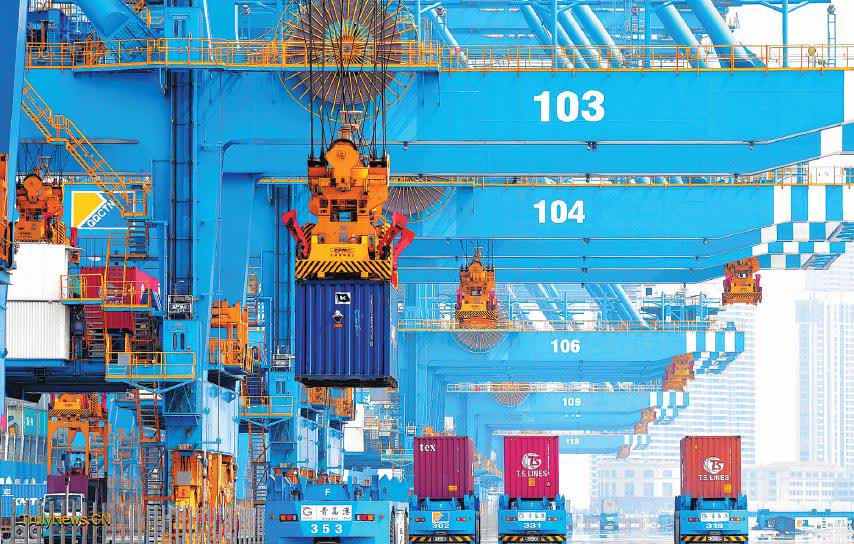
In the early stages, foreign companies sent their managers, sales experts and engineers, along with product samples, to cities like Shanghai, Beijing and Guangzhou, Guangdong province to establish representative offices and test the viability of the Chinese market — particularly during the 1980s.
By the 1990s, many of these companies began building factories in locations such as Shanghai; Taicang and Kunshan in Jiangsu province; Dongguan, Guangdong; and Xiamen, Fujian province. The number of their plants surged after China’s accession to the World Trade Organization in 2001.
With products manufactured in China being supplied to both domestic and international markets, foreign enterprises like France’s Schneider Electric and Germany’s Bosch Group increasingly appointed Chinese executives to lead their operations in the country. This move was part of broader localization strategies, which also included the establishment of numerous research and development centers within China.
As the People’s Republic of China celebrates the 75th anniversary of its founding this year, senior executives of multinational companies said that China’s recent economic reforms are poised to bolster the global supply chain network and deepen the integration of foreign investment with the country’s economic growth.
For global firms covering countless products and services, the Chinese market has evolved into a “hub” for fostering growth and innovation.
Anna An, president for China unit at Henkel AG & Co, a German industrial and consumer goods manufacturer, said that since entering China more than 50 years ago, her company has grown alongside the country, making continuous investments that have supported talent and industry development.
“We will continue investing in China to further support our customers with innovative and sustainable solutions and products in sectors where we see strong future demand, such as consumer electronics, new energy vehicles, advanced manufacturing, packaging and consumer goods,” she added.
Viewing China as crucial to its global business strategy, Nat Madarang, president for Asia Pacific at Goodyear Tire and Rubber Co, a United States tire manufacturer, said that China’s new reform initiatives, focused on expanding opening-up policies and fostering industrial upgrades and technological innovation, align well with his company’s strategic objectives.
“We see substantial opportunities in China’s ongoing reform and opening-up initiatives and remain dedicated to deepening our presence and investment in China and the broader Asia-Pacific region,” said Madarang.
Benefiting from the Regional Comprehensive Economic Partnership, the US company also ships tires manufactured in China to Japan and a number of Southeast Asian countries.
Driven by factors like rapid industrial upgrading, shifting business models and growing demand for personalized products, many MNCs have already recognized that Chinese consumers and the business environment are continuously evolving, said Tang Yihong, a professor specializing in cross-border investment at the University of International Business and Economics in Beijing.
In response, these companies have established more innovation and service centers to meet local demand in China, she said.
From January to August, China’s actual use of the foreign direct investment stood at 580.19 billion yuan ($81.79 billion). Affected by a high base in the same period last year, the scale of such investment decreased year-on-year, but remained at a relatively high level in the context of the past decade, said the Ministry of Commerce.
In particular, nearly 37,000 foreign-funded enterprises were newly established in China during this period, a year-on-year increase of 11.5 percent.
Between January and August, the foreign trade value of foreign-invested businesses reached 8.4 trillion yuan in China, up 1.5 percent year-on-year, accounting for 29.4 percent of the country’s total foreign trade value, said the General Administration of Customs.